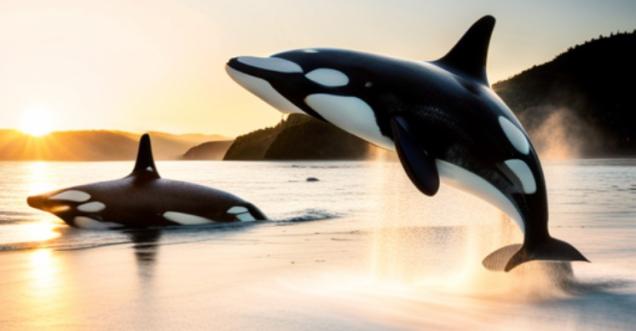
What are the saddest animal species known to mankind?
There is no definitive answer to the question of what is the saddest animal species. However, there are a few species that are often considered to be particularly sad, due to their solitary nature, their difficult living conditions, or their declining populations.
Some of the animals that are often considered to be the saddest include:
Vaquita: The vaquita is a small porpoise that inhabits the Gulf of California. It is considered the most endangered marine mammal in the world, with only a few individuals remaining due to accidental entanglement in illegal gillnets used for fishing another endangered species, the totoaba fish.
Amur Leopard: This critically endangered leopard subspecies is found in the Russian Far East and northeastern China. It's estimated that only around 60 individuals remain in the wild due to habitat loss, poaching, and depletion of its prey.
Northern White Rhino: The northern white rhinoceros is functionally extinct in the wild, with only two known individuals remaining, both females, as of my last knowledge update in September 2021. This situation is a result of heavy poaching for their horns.
Sumatran Orangutan: The Sumatran orangutan is critically endangered due to habitat loss caused by deforestation for palm oil plantations and illegal logging. Their populations have been severely fragmented, leading to a decreased gene pool and increased vulnerability to disease.
Hawaiian Monk Seal: The Hawaiian monk seal is one of the most endangered seal species in the world, with only around 1,400 individuals remaining. Their populations have been declining due to habitat loss, food scarcity, and human interactions.
Polar bears: Polar bears are large, solitary predators that are found in the Arctic. They are facing a number of threats, including climate change, habitat loss, and hunting. As a result, their populations are declining rapidly. Polar bears are also known for their intelligence and their social bonds, which makes their plight particularly sad.
Elephants: Elephants are highly intelligent and social animals that live in herds. They are also one of the most endangered species on the planet. Elephants are poached for their ivory tusks, and their habitats are being destroyed by humans. As a result, their populations are declining rapidly. Elephants are also known for their empathy and their grief, which makes their plight particularly sad.
Orcas: Orcas, also known as killer whales, are apex predators that live in pods. They are intelligent and social animals, but they are also known for their aggressive behavior. Orcas are also facing a number of threats, including pollution, habitat loss, and hunting. As a result, their populations are declining in some areas. Orcas are also known for their complex emotions, which makes their plight particularly sad.
Pandas: Pandas are solitary animals that are native to China. They are known for their bamboo diet and their clumsy appearance. Pandas are also endangered, due to habitat loss and a low reproductive rate. As a result, their populations are declining rapidly. Pandas are also known for their gentle nature, which makes their plight particularly sad.
Galapagos tortoises: Galapagos tortoises are large, long-lived reptiles that are found on the Galapagos Islands. They are known for their slow movement and their long lifespans. Galapagos tortoises are also endangered, due to hunting and habitat loss. As a result, their populations are declining rapidly. Galapagos tortoises are also known for their gentle nature, which makes their plight particularly sad.
It is important to note that these are just a few examples of animals that are often considered to be sad. There are many other animals that could be included on this list, depending on your personal definition of sadness. It's important to note that conservation efforts are being made to protect and save these and other endangered species from further decline. These examples highlight the need for increased awareness, conservation efforts, and policies to address the threats faced by various animal species.

























